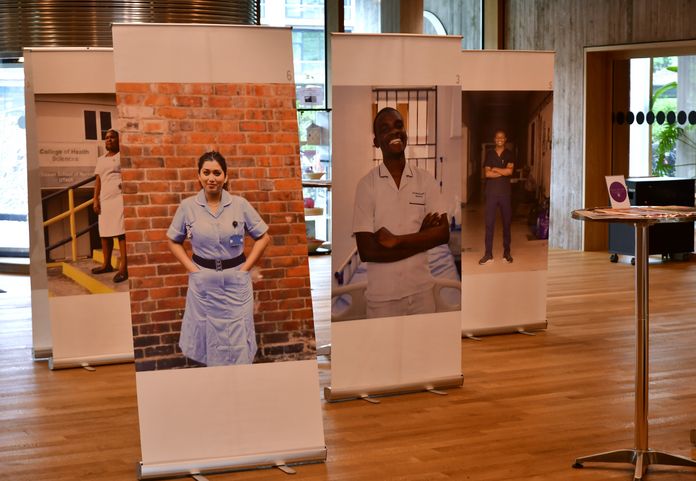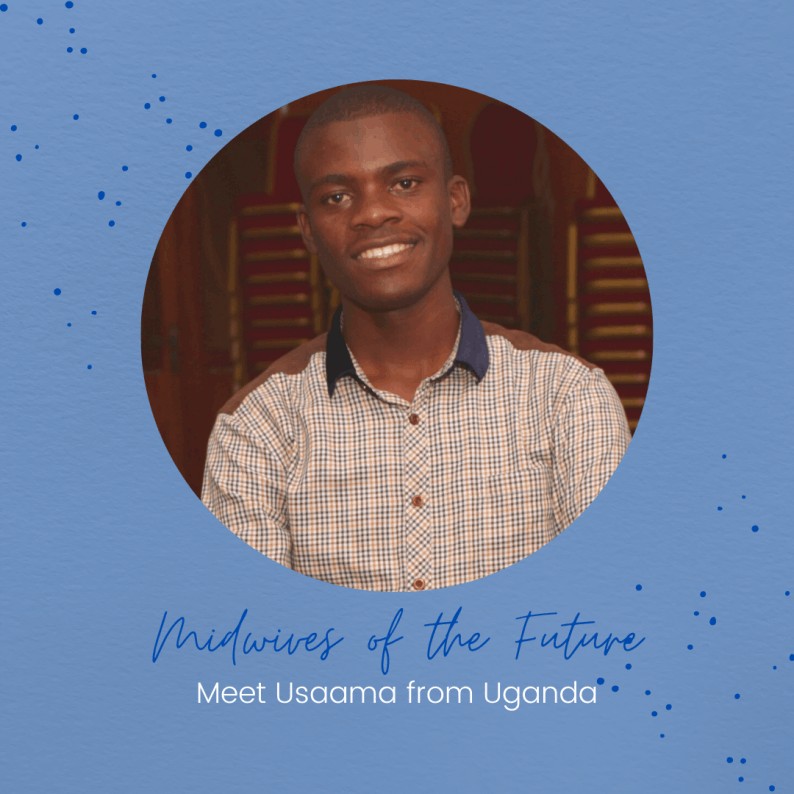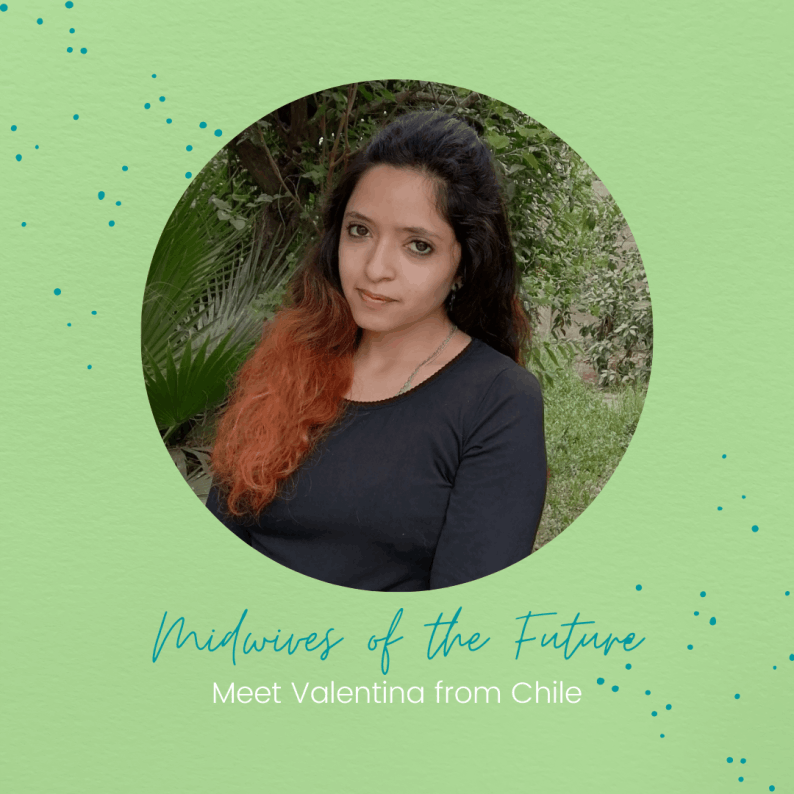
Every two minutes, a woman dies from causes related to pregnancy or childbirth – most of them preventable. On International Day of the Midwife, Leah Bohle shares Midwives of the Future, a project close to her heart that puts midwives at the centre of the conversation about maternal health.
Globally, a pregnant woman dies every two minutes. These aren’t isolated tragedies – they happen every day, and most could be prevented. Despite years of global health efforts, maternal and newborn mortality remain alarmingly high. In fact, in many parts of the world, progress has stalled or even reversed (WHO et al., 2023). Without significant change, we will fall short of achieving Sustainable Development Goal 3: ensuring healthy lives and well-being for all.
But there is hope, and a clear path forward. A landmark study published in The Lancet found that universal access to midwife-led care could prevent 67% of maternal deaths, 64% of newborn deaths and 65% of stillbirths. That’s more than four million lives saved every year by 2035 (Nove et al., 2021). Midwives are the cornerstone of maternal health. They bring expertise, continuity of care, and compassion, often under challenging circumstances. I believe that having a skilled and trusted midwife by one’s side should not be a privilege, but a basic human right.
That belief inspired me to create Midwives of the Future, a series of interviews with midwifery students from around the world that are published on www.midwivesofthefuture.com or shared as an exhibition. The portraits capture the dreams, challenges and aspirations of a new generation entering this profession. These young midwives are not only caregivers, but they are also a beacon of hope, resilience, and commitment to a healthier, more equitable future. Below, you’ll meet some of them; each with their own journey, but all united by a shared commitment to safer births and stronger communities.
While this series is a personal project, it is closely connected to what I do every day at Swiss TPH. Here, I lead and contribute to initiatives focused on improving access to quality maternal care. Current projects include MAM*AI, an AI-powered clinical decision support tool for midwives in Zanzibar, developed in collaboration with D-tree and EPFL; and a training programme for midwives in Uzbekistan, near the Afghan border, implemented together with the Midwifery Department at Ludwigshafen University of Business and Society (LUBS) and mandated by GIZ.
Both my work at Swiss TPH and the Midwives of the Future initiative are driven by the same vision: A world where every woman can give birth safely, with dignity and support.

Usaama Ssewankambo
22 years, Lira, Uganda
My step-mother inspired me to become a midwife. She works as a nurse-midwife and told me about the opportunity that I could enter the midwifery programme. The programme exists only since 2016; beforehand the system was only allowing females to become midwives in Uganda.
I had a lot of anxiety at the beginning because the expectations on me were high. As years passed by, I became passionate about my studies and by now I am super proud to be a male midwife. Besides, the government is sponsoring 90% of my education, which is like the icing of the cake.
"You can't be a male midwife!..."
In Uganda males can be in the OB/Gyn department if you are a medical doctor or a scrub nurse -but being a male midwife is something new. When I tell someone that I am a male midwife, they say: “What? You can’t be a male midwife. Maybe a ‘midhusband’, or a medical doctor…!” Even in my family they call me doctor.
The Bachelor programme consists of four years studying at the University, followed by a one year internship. We are 70 students in my class, but only very few males. What I like most are the practical sessions in the skills lab and using Mama Natalie. The theory is important, but when I put the theory into practice that is how I wont forget it and it makes me feel really energetic. We also have a student association which came to life only three years ago and I will be the president next year. We are planning many activities and also want to set-up a midwifery association in the future.
Since March the University was closed because of Covid and I only returned last week, as I live in the far South and the University is in the North. We only had few online lectures but as the internet is not strong enough we could not continue online.
In Uganda I have encountered several challenges so far. What we learn is not necessarily possible to put into practice, simply because resources are limited. Sometimes oxytocin is missing or catheters are missing…and we are forced to improvise. You feel bad, but in the end the only thing you can do is to focus on the mother. In addition, being a male midwife is a new concept in Uganda and I have experienced situations where mothers or staff did not accept me as a midwife.
When looking at how things are done here – in the hospitals but also outside of it – and if you look at the statistics on how many women and newborns are dying in Uganda, I know that if I am using my knowledge and skills in the future, I can save lives and that is something which makes me really happy.
I look up to some of my lecturers and I am in love with Sheena Byrom, a midwife and real role model I am following on social media. My dream is one day to have a family I can make happy and to become a midwifery professor in the future. We need to do more research and so we can change the narrative in Uganda!
Interview by Leah F. Bohle, 22 November 2020
Photo by Usaama Ssewanakambo

Valentina Lopez
25 years, Santiago de Chile, Chile
“Once I finished high school I was lost in the void of decisions…I had no idea what I wanted to do in my life. I had a lot of pressure on me because I had really good grades. So my family was like: you can become everything…but you must be a doctor.” I took a year off and that’s when I found out that I could be a midwife. What really attracted me is that you get really close and accompany the women all their life. We are also doing family planning, so you will see them every year and they are not just patients, but people! I like getting to know the people I work with.
As midwives we have legal responsibilities in Chile and we are viewed as an authority. We provide services through the entire life cycle, from gynecological to family planning, neonatology and deliveries. So we see practically see women from birth until they enter the menopause.
“I am also a feminist – and of course you can be a feminist in every field – but I feel like being a midwife I can be in really close contact with the women and help them to empower themselves so they can take their decisions with all the right information.” Especially now that here in Chile we are trying to go back to a more natural delivery with less medication and hospitalization. When someone gets pregnant all decisions are taken away from you. We try to turn that around and make sure that women can take their own decisions. In Chile the birth is very medicalized. In the public health service the Cesarean section rates are around 50% and in private facilities they are up in the sky. Cesarean section rates even go up shortly before vacations – that is very common. The doctors don’t want to be woken up during the night. And it is also cultural: doctors tell women that the vaginal birth is very painful and the women are afraid and prefer to plan an operation instead.
"I am also a feminist..."
Midwifery education in Chile is embedded at the University – I am at the Universidad de Chile – and you study for five years, whereas during the last year you conduct internships at the hospitals. You can indicate preferences but in the end the random generator online allocates where you do your internship. Due to COVID-19 however my internship got cancelled as all hospitals closed down for students. I was supposed to finish my studies at the end of this year – but now I am still waiting for my placement. We also had a “social revolution” in October last year – so some of my classmates are still finishing their fourth year. “So all is really messy – but we are doing it!”
I have always been good in working fast. But as a midwife you really have to be fast! You need to follow all steps but sometimes you need to take very quick decisions. That is still challenging at times. After the fourth year you are allowed to work clinically as a “technician”. Due to COVID-19 the hospitals were in desperate need of healthcare workers, so I started to work at a maternity while waiting for my internship to start. So many things were happening there! Emergency Cesarean sections, forceps, so many things – but it was the first time I did not have pressure to be a good student and I was not evaluated while doing my work, I was just working and I suddenly had responsibility. I gained a lot of confidence during this time!
“I have one teacher who is specialized in neonatology. She is so gentle. She is like a mother to everyone. And she knows a lot (…); and she is a really, really good teacher! I want to be someone as knowledgeable as her, but without forgetting the human side of medicine. (…) We have that issue here, that midwives sometimes forget that they are working with human beings. And they are cold to the people. And she wasn’t. That’s how I would like to be in the future and do not forget the human side.”
I don’t want to stop here but I would also love to get my Master degree and study abroad and maybe do some research or teach – but not full time. I always want to work as a midwife – and in my free time travel and climb mountains!
Interview by Leah F. Bohle, 13 November 2020
Photo by Valentina Lopez